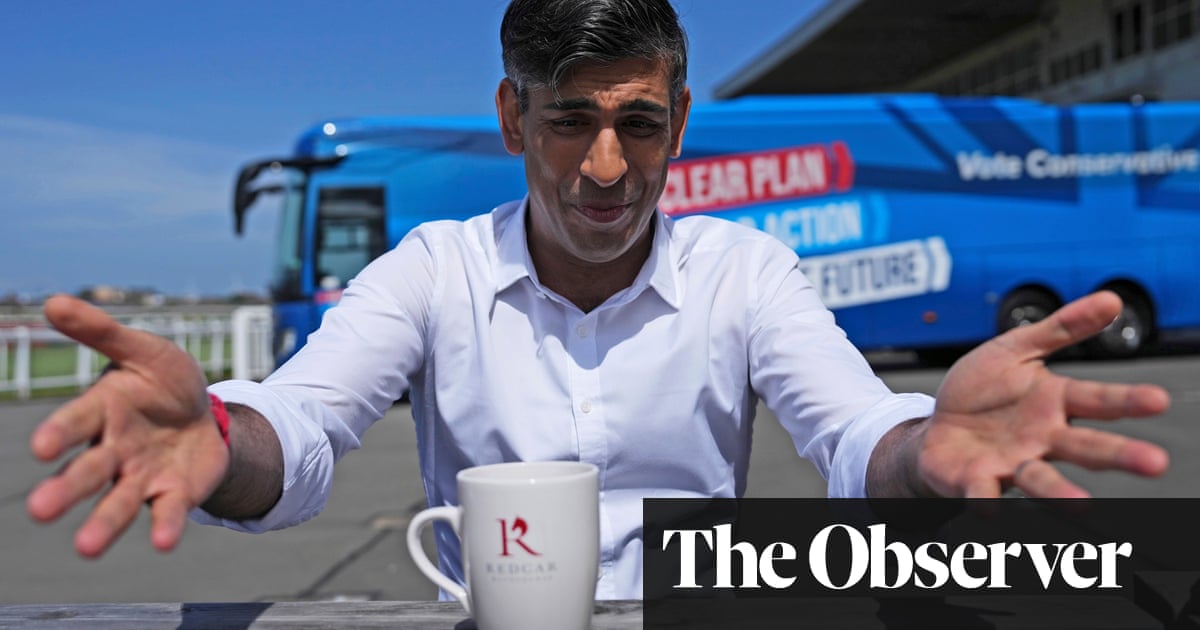Weeds are undergoing a cultural makeover. Historically vilified as a threat in a nation of impeccable lawns, they are finally being embraced by gardeners, from front gardens to the Chelsea flower show.
The conservation charity Plantlife, which runs the annual No Mow May campaign encouraging gardeners to leave their lawns to grow for a month, said 46% of more than 2,000 people it surveyed would not mow more than once in May, with 40 local councils also pledging to leave wild spaces untended .
A summer-long exhibition at the Royal Horticultural Societyâs Wisley garden in Surrey opened last month, celebrating William Robinson, a pioneering advocate of wild gardens.
After last yearâs Chelsea flower show, in which weeds were declared âhero plantsâ, this year saw cow parsley and forget-me-nots, flowers that typically grow wild, win best in show in Ula Mariaâs forest bathing garden.
Now a new book focuses on the beauty of these previously unwelcome plants.
Artist and writer Anna Chapman Parker spent a year studying the weeds that grew near her house in Berwick-upon-Tweed, Northumberland, writing and illustrating Understorey: A Year Among Weeds, which is published this week.
Chapman Parker said her year observing weeds everywhere she went â on the school run, walking her dog or out shopping â had allowed her to look at nature in a new light.
âOnce you tune into whatâs going on with these plants, the most unprepossessing walk becomes something really interesting and fresh,â she said. âOne of the reasons I found this project so great was finding newness and freshness in that very routine, everyday rhythm.â
Chapman Parkerâs work on Understorey began about five years ago, when, with two young children, she found she was missing time in her studio. She would take a sketchbook outside with her, drawing whenever she had a chance while her children were playing. âI wasnât really thinking about what I was drawing,â she said. But often it was weeds.
While visiting the National Gallery in London, she had a lightbulb moment looking at Piero della Francescaâs The Baptism of Christ. Weeds were everywhere, âdotted all over the dry ochre earth, emerging from cracks in every rock,â she writes in the book. âNo longer accidental green stuff that didnât matter: they were a living constancy, a kind of wild connective tissue across time and place. I wanted to know them better.â
Armed with plant-identification apps and a copy of Wild Flowers of Britain by the photographer and botanist Roger Phillips, Chapman Parker learned about as many weeds as she could, making line drawings of them for the book, which spans a full year, showing the natural cycle of plants.
after newsletter promotion
Zoe Claymore, an award-winning garden designer, said that the rehabilitation of weeds in our gardens had come as awareness grew of the climate crisis. âAs our society becomes increasingly aware of the climate and biodiversity challenges we face, we are placing greater value on the âwildâ,â she said. âThis awareness drives us to take action in the spaces we can control, such as our gardens ⦠We are reframing what a weed is in response to the climate challenges and biodiversity loss we are facing.â
As gardeners face increasingly volatile and unusual weather, weeds can also be useful, Claymore said. âAs gardening requires more resilient plants â and we know the old set of âweedsâ are resilient by nature â they become more attractive. I think there is a push to recognise these robust plants and the role they can play.â
Take the groundsel, for example. One of the most widely distributed plants in the world, each specimen bears more than 1,000 seeds, which are resistant to frost, can self-pollinate and produce three generations in a year. âItâs an incredibly impressive plant,â said Chapman Parker.
Weeds are ecologically vital too. Since the second world war, the UK has lost 97% of its wildflower meadows. While most weeds would not be described as wildflowers, they would have grown in the meadows we have lost. Full wildflower meadows are harder to establish, but spaces given over to weeds can benefit pollinators and other insects, providing habitats and shelter for all kinds of animals, as well as capturing carbon.
Weeds, Chapman Parker said, have fantastic names. Groundsel is known as old-man-in-the-spring and there is also shepherdâs purse and ivy-leaved toadflax. Their names highlight a previous, closer relationship we once had with wild plants: we fed sow thistles to lactating pigs and chickweed to hens. Feverfew was a treatment for fevers and those with the âwortâ suffix had medicinal uses.
Some weeds â notably the invasive Japanese knotweed â cause havoc or reduce biodiversity by overshadowing other species. But a few pots by the front door could harbour seeds blown on the wind or secreted by a bird.
âThat happenstance element, or behaviour, of weeds, itâs so much more interesting than going along to the garden centre and chucking in a few bedding plants,â said Chapman Parker. âItâs really lovely.â
She described her garden as having âlapsedâ since she took a keen interest in weeds, although she said she is ânot a total rewilding romanticâ. âSometimes people say: âDonât use the word âweedâ, itâs negative.â I think itâs more interesting to reclaim the word as neutral or potentially positive.
âThe international conversation around ecology is pretty dark, and most of us feel incredibly powerless and despondent about it. I think these plants are a real signal of hope.â









